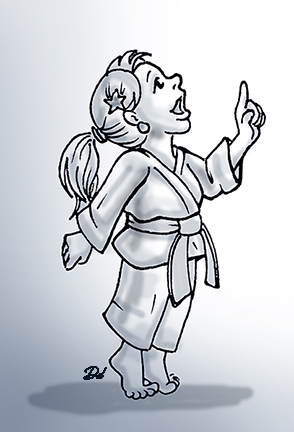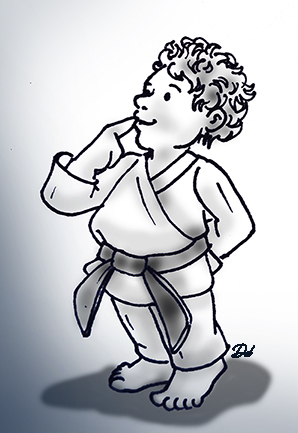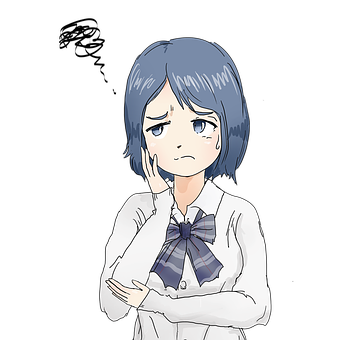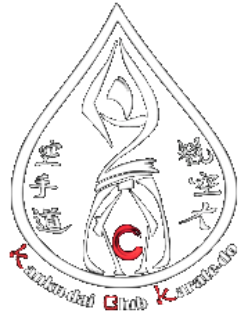For each question, an answer!

(questions collected here and there)
What is a good age for a child to begin training in karate-do?
We usually suggest a limit age of 6 years old: as we always say, younger children should learn how to swim first! On the contrary, for adults there are no age limits: karate-do practice goes on for whole life…
Do I need to be “built up”, I mean muscularly fit?
No, because karate-do fits every kind of body. Indeed, with time everyone will build his/her own karate. Athletic qualities are not fundamental in the beginning: much more important are willingness and perseverance, as our motto says:
“Training for 1000 days is just training,
training for 10000 days is discipline!”
Can I train only once a week?
Sure you can, but for different ages, we advise for different training pace: once a week for children up to 9 years old and twice/three times a week for elder ones. It is a fact that nowadays time seems to be a luxury: kids more than anyone else are bound to many different activities (full-time school, homeworks, sports, various courses, and so on). We recommend to do only one activity at time: we won’t get offended if you’d rather go to volleyball or football than karate!
What do I need to attend your classes?
If you are beginners and never attended a martial arts’ club, we invite you to watch a class as standers-by. Later, you could attend some free classes. After that, if you really like it, we’ll proceed with formal subscription.
For subscription you’ll need a certificate of good health.
For training, at last, you’ll need comfortable outfit and… putting your passion!
Are competitions mandatory?
Of course not: competitions are a personal choice and as a choice are respected. Anyhow, if one wants to engage a competition, we recommend to attend extra training sessions, more focused on the subject (see hours). “Estote parati”, said the Romans…

Why belts? What is their purpose?
Belts are to… fasten your jacket! No, we’re kidding… At the end of the season, usually around the beginning of June, Grading Exams are held: it is a series of technical trials which closely follow the work done during the season, under the judgment of an external commission. If you’re promoted, you’ll get a higher rank (in jargon: a lower kyu), symbolized by a belt of a different color.
Belts are: white (10/9th kyu), yellow (8th kyu), orange (7th kyu), green (6th kyu), blue (5/4th kyu) and brown (from 3rd to 1st kyu). After that, there is the black belt. But this is another story…
Is it true that karate has got different styles? Why?
Yes, it is true. Like many other martial arts, karate-do teachings were passed down from father to son and mother to daughter. Who learnt it, when later became teacher to someone else, made variations, gave his/her own interpretations and so on. With time, all of this contributed to the birth of different schools first (that is… family-ruled gyms!) and then of actual, codified styles.
Any experienced practitioner, though, may confirm you that, in its essence, karate is one. That is, all karatekas speak the same language!
What’s your school’s style?
Our school’s style is named shotokan, and is one of the most popular karate styles in the world. Nevertheless, through the years, friendship and meetings with teacher of other schools and other styles allowed us to get a “wider” view. And yes, we found out that karate-do is one. Definitely. (We’ve already told it, haven’t we?)
What does karate-do mean? I’ve always heard karate!
And you’re right! As a matter of fact, karate-do is the “official name” of the discipline. In Japanese martial arts, the suffix 道 (read: do) is stuck to the name of the art with the meaning of “teaching”. Thus you have judo (柔道), kendo (剣道), aikido (合気道), etc. etc. Could karate, sorry karate-do, be any different?
I’ve already practiced karate in the past, but I quit. If I come to your dojo, will I have to start again from white belt?
Of course not: no way! The belt you earned is part of your life and your experience: nobody could ever take it away. The only thing we can do here is teaching and advancing, not erasing what you did somewhere else. It won’t be fair, nor in the spirit of martial arts!
Are you member of any federation? Maybe FIJILKAM?
No, after many years spent under federations (UNIAKS, FIJILKAM), we decided to exit any official membership. Anyhow, Italian law requires to be registered as a member under CONI or a Sport Promotion Committee, so we follow this rule.
During the classes teachers speak Japanese?
No, we talk in Italian – or any other language we know, if necessary! All joking aside, proper karate jargon is in Japanese, so we’ll use Japanese at least for that. Then, if you’re interested in studying…

How many people can a karateka beat up at the same time?
Mmmh… I daresay at least eight, and… standing on one leg! Well, more seriously, our idea of karate-do and martial art is that, in life, no one should ever come down to fight with anybody. Much better using words and politeness: a karate-do practitioner understands it before than anything else, together with a pretty good amount of self-confidence.
And, believe me, this is way harder than kicking left and right…
How long will it take to get a black belt?
Quite a lot, but luckily when you enjoy time goes by fast!
Black belt is at same time the end and the beginning of your path. The end because it comes after the eight colored belts, necessary steps of your training. The beginning because since that moment on, you pass from the right to do karate to the duty to do karate. And, after a life spent in martial arts, your black belt whitens more and more… getting white again! Isn’t it a wonderful example of the fact that you never stop learning?
Can martial arts make my child aggressive?
Actually, the reverse happens: martial arts teach calmness and respect for the others. Furthermore, often they manage to guide a person’s “vivaciousness” in the sport practice.
Could my child get seriously injured doing karate?
The earnest answer is yes. Anyhow, not more likely than could happen in any other daily activities. This is because accidents may always happen. We can just say that, until now, in thirty years of our gym’s activities, we had accidents only once in a blue moon: no serious injuries and all occurred among… adults who forgot to pay necessary attention!
Do self-esteem and confidence grow with karate?
Well, it’s what usually happens. Karate-do (actually any martial arts well-done and well-taught) promotes a deeper self-knowledge of one’s own capacities, limits and potentials. Moreover, grouping allows both an immediate confrontation between people and the building up of a team spirit, where anyone has his/her own importance.
Is karate only for boys?
That’s not true. Not only in the years girls’ presence has increased, but they currently outnumber the boys. As a teacher, I can only say that girls are usually more focused, disciplined, attentive and… get the hang of it sooner! Ideal pupils, ain’t they?
I’m 19, I never did karate and I’ve got handicap; starting now could be a problem?
Diplomatic answer: it is a problem if you believe it is a problem. I think that, at 19, hardly anything is a real problem, but you understand this only once you’re far away from 19. Karatedo can help to “gain perspective”, so we try it hard nearly every day. Of course, sometimes we manage, sometimes we don’t… But it’s important to make an attempt, so to live without regrets.
Does karate make children more sociable?
More than karate-do, sociability is favored by the environment. In the years, we applied hard on it: training together, encouraging both teamwork and individual competition (to improve through confrontation) and, most of all, turning many exercises into funny games (for children), have surely helped to socialize. The proof is that many are friends both in and out of the gym!
What happens if I cannot carry my child to all classes?
Let’s reassure parents: no whiplashes or so!
Naturally, if you miss some classes during the year, no big deal. This is not school: there’s no such a thing as a commitment to come to karate. Of course, if the number of missing is higher than the number of presences… maybe it’s legitimate to wonder if you truly fancy coming here!
Can I quit whenever I want?
Surely you can: decision to practice karate-do is personal and depends on many different factors. We’d like that one practiced for the whole life, but usually it is not the case. In fact, in the years many quit with respect to the ones that stayed. There’s always a perpetual “renewal” even in karate-do, as all the human stuffs…

Haven’t found what you were looking for? Send us your question!
